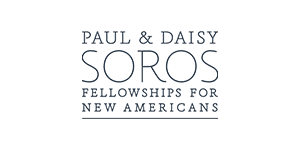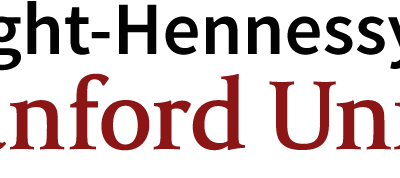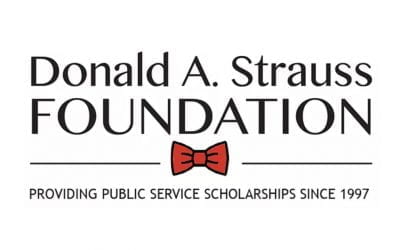About
The Harry S. Truman Scholarship Foundation—the federal memorial to our thirty-third President—awards merit-based scholarships to college students who plan to pursue careers in government or elsewhere in public service. Truman Scholars receive up to $30,000 for graduate or professional school, participate in leadership development activities, and have special opportunities for internships and employment with the federal government.
The Foundation defines public service as employment in government at any level, uniformed services, public-interest organizations, nongovernmental research and/or educational organizations, public and private schools, and public service-oriented nonprofit organizations.
Fields of Study
The Truman Foundation places no limitations on the applicant’s field of study or major, as long as you can relate your academic interests to particular public service career objectives.
Many recipients major in economics, political science, or history, and law or public policy are common fields of intended graduate study. However, students in a wide range of majors may be strong candidates because a wide variety of disciplines prepare students for careers in public service. Students majoring in such fields as chemistry, engineering, environmental studies, foreign languages, mathematics, and computer sciences (among others) are encouraged to apply.
The Foundation has supported Truman Scholars in many fields of study, from agriculture, biology, engineering, technology, medicine, and environmental management, to fields such as economics, education, government, history, international relations, law, political science, public administration, nonprofit management, public health, and public policy.
Eligibility
Each nominee for the Truman Scholarship must be:
- a full-time junior-level student at a four-year institution pursuing a bachelor’s degree during the year of the scholarship application. ‘Junior’ here means a student who plans to continue full-time undergraduate study and who expects to receive a baccalaureate degree in the year following their scholarship application, or a student in his or her third year of collegiate study who expects to graduate in the year following their scholarship application;
- nominated by the Truman Scholarship Faculty Representative at his or her institution;
- in the upper quarter of his or her class; and
- a United States citizen or a United States national from American Samoa. Resident aliens (green card holders) are not eligible.
A good candidate for the Truman Scholarship meets the above eligibility requirements and also:
- has an extensive record of public and community service;
- has outstanding leadership potential and communication skills; and
- is committed to a career in government or elsewhere in public service, as defined by the Foundation.
The scholarship does not stipulate a minimum GPA. However, to be competitive, SOP advisors recommend that applicants achieve at least a 3.7 GPA and demonstrate a strong record of noteworthy accomplishment, professional competence, and dedication to ambitious career goals in public service and governance, nonprofit leadership, or education. Relevant qualifications may include 1 or more years of leadership or founding roles in extracurricular or service organizations; extensive volunteer service experience; formal participation in political campaigns or sustained activism for causes; military service; and/or significant work experience/internships relevant to the stated career goals.
Scholarship Benefits
The Foundation provides:
- Up to $30,000 toward a public service-related graduate degree.
- Truman Scholars Leadership Week. This event, held at William Jewell College in Liberty, Missouri, introduces new Scholars to the services provided by the Foundation and the many pathways to public service. Scholars participate in seminars and workshops with distinguished Truman alumni and other public service leaders, a group exercise about policy implementation, a graduate school and career fair with representatives from the schools and programs most attended by Truman Scholars, and community service events in the Kansas City area; this event is required of all Scholars.
- Summer Institute. Immediately after college graduation, Scholars have the opportunity to participate in an eight-week Summer Institute in Washington, DC. The Foundation helps to arrange internships with government agencies and nonprofit organizations, seminars and workshops, meetings with Washington policymakers and Truman alumni, and opportunities for community building among Scholars.
- Truman-Albright and Other Fellows Program. After Summer Institute, Scholars may elect to stay in Washington, DC, for a full year in the Truman-Albright Fellows Program; Truman-Albright Fellows are placed in public service jobs while participating in workshops, seminars, and mentoring opportunities. Additional fellowship opportunities, outlined on the Truman website, are available for Scholars as they move through the early stages of their careers in public service.
The award may be used only for tuition, fees, books, room and board, or other specifically approved expenses. Payments from the Foundation may be received to supplement, but not to duplicate, benefits from the educational institution or from other foundations, institutions, or organizations. The combined benefits from all sources may not exceed the costs of tuition, fees, books, and room and board as prescribed by the institution.
Scholars may defer, for up to four years, Foundation support for their graduate studies after completion of their undergraduate studies. Scholars in graduate study programs supported by other means and Scholars in the Armed Forces may request additional years of deferral.
Service Requirement
Scholars are required to work in public service for three of the seven years following completion of a Foundation-funded graduate degree program as a condition of receiving funding. Scholars who are not employed in public service for a total of three years, or who fail to provide proof to the Foundation of such employment, will be required to repay any funds received along with interest. The Foundation will have an appeals process for those Scholars in special circumstances.
The Foundation may withhold or terminate a scholarship due to unsatisfactory academic performance or failure, as judged by the Foundation, to prepare specifically for a career in public service.
Recent Recipients & Finalists
Each UCI undergraduate who has pursued the Truman Scholarship has had a unique profile of practical, sustained engagement in group leadership. However, there are some common trends, such as participation in student government through the Associated Students of UCI and in off-campus internship experiences related to the student’s intended career field, often, but not always, undertaken through the UCDC or UC Sacramento programs.
UCI Truman Scholars have also typically been affiliated with a leadership development program, such as the Campuswide Honors Collegium or the Student Achievement Guided by Experience (SAGE) program. Finally, while some may have been considered “well-rounded” individuals, each Truman Scholar’s service and leadership activities were generally concentrated on a particular issue or topic about which they were very passionate, allowing the student to articulate a narrative of intentional action and progressive success.
- In 2021-22, Steven Gong was declared a Finalist.
- In 2015, Daniela Estrada (Political Science) received a Truman Scholarship, and Julian Bugarin (Political Science and History) was declared a Finalist.
- In 2014, Sanaa Khan (International Studies) was declared a Finalist.
- In 2012, Felipe Hernandez (Political Science and Music Performance) received a Truman Scholarship.
- In 2006, Mukul Kumar (History) received a Truman Scholarship.
- In 2005, Vanessa Zuabi (Political Science and International Studies) was declared a Finalist.
- In 2004, Jacqueline Chattopadhyay (Economics and Political Science) received a Truman Scholarship.
Competitiveness
Candidates must first be nominated by the Truman Faculty Representative at their institution. Each accredited four-year institution may nominate up to four students. Four-year institutions may also nominate three additional students who completed academic work at another institution.
Semifinalists are selected nationally from university nominations, and are interviewed by Regional Review Panels composed of scholars and public officials. Each Panel recommends two people per state, plus up to six candidates for Scholars-at-Large.
According to the Executive Director of the Truman Foundation, applicants selected for interview “show a long history of involvement in what the program seeks to reward (public service and government activities), have exerted leadership, have fine academic achievements, reveal some unique and interesting (preferably memorable) aspects about themselves and their experiences, provide a graduate school proposal that makes sense, prepare a carefully thought out and well-researched public policy analysis,” write well, and have strong letters of reference.
In 2019, the Foundation selected 62 Truman Scholars from among 840 applications forwarded by over 346 colleges and universities. Scholars were chosen by 16 selection panels on the basis of leadership potential, intellectual ability, and the likelihood of “making a difference.” Each panel typically included a university president, a federal judge, a distinguished public servant, and a past Truman Scholarship winner.
In 2021, one scholarship will be available to a qualified resident nominee in each of the 50 states, the District of Columbia, Puerto Rico, and, considered as a single entity, the Islands: Guam, Virgin Islands, American Samoa, and the Commonwealth of the Northern Mariana Islands. (Residency is generally determined by home address for school registration, family’s primary residence, and voter registration.) The Foundation may select up to 15 at-large Scholars in 2021.




